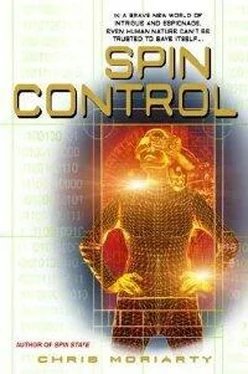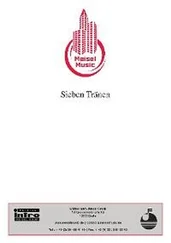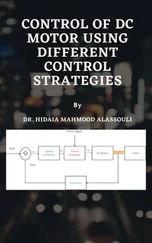Viewed in this light, Earth’s ecological collapse can be seen as the logical, even inevitable conclusion of four millennia of human evolution. Earth died not because humans strayed from the path of “nature” or “instinct,” but because individual humans obeyed their natural instincts far too well for their own collective good…
—INTRODUCTION TO SOCIOBIOLOGY (APPROVED FOR THE SIXTH-YEAR CURRICULUM BY KNOWLESSYNDICATE STEERING COMMITTEE, YEAR 11, ORBIT 227)
They held the first bidding session on the dangerous but neutral ground of the International Zone.
Arkady and Osnat crossed through the Damascus Gate checkpoint at just past ten in the morning, elbow to armpit with a sweating crowd of religious pilgrims, under the hard watchful eyes of the Legionnaires. By the time they cleared the checkpoint and plunged into the Old City, Arkady had already realized that this was a different city from the one they’d walked through before reaching the great gate. Where the lines at the checkpoint had been dominated by pilgrims and commuters, the actual streets of the Old City were dominated—at least to Arkady’s Syndicate-bred eyes—by beggars. It took him a while to understand that they actually were beggars. They didn’t ask for money. They just sat slumped along the stone walls lining the narrow streets, looking like they’d been there so long they’d given up even hoping for money. Arkady’s instinctive response was impatience. Why didn’t they just go to collective supply, take out what they needed, and get on with life? But of course there was no collective supply here. And when he looked more closely at the beggars he saw that many of them were crippled or deformed or obviously crazy.
“It’s a euth ward ,” he said wonderingly.
“They try to chase them away,” Osnat said with a fatalistic shrug, “but there are only so many cops around.”
“But there must be some kind of renormaliza—er, rehabilitation program.”
She gave him an incredulous look out of the corners of her eyes. “If someone in the Syndicates has figured out how to rehabilitate people from being poor, they ought to apply for the freaking Nobel Peace Prize.”
Arkady stared at the crumpled forms, trying to take the measure of the people inside the rags, but none of them would meet his eyes. And they weren’t the only ones.
There was a special quality to the gaze in the International Zone, a quality of nonlooking, nonseeing. The Legionnaires wore their mirrored sunglasses like body armor and did their level best to pretend not to speak any language but French when anyone had the effrontery to ask them questions. Hasidim hurried along under their dreary hats, assiduously shielding their eyes from any contact with the godless present. NorAmArc Christians lumbered through the stations of the cross, eyes glued to their spincorders, doing their best to turn a real living city into a theme park. Muslims glared into the near distance as if they thought some Sufist act of will could make the hordes of unbelievers vanish from their holy sites. Even the crazy people—and there seemed to be a great many of them—shouted through you instead of at you. The only people who actually looked at anyone were the Interfaithers…and the way they looked at you made you realize that being ignored was far from the worst thing that could happen to you.
“Why are there so many Interfaithers?” Arkady asked.
“Open your eyes. Why is right in front of your nose.”
He looked. He saw bored Legionnaires, sullen locals, dusty walls crumbling in the ozone haze of a warm fall afternoon, six thousand years of history surrounded by sandbags and reinforced concrete. “I don’t see it.”
“That’s ’cause you’re not pointing your nose the right way.”
He glanced at her in confusion, then followed her hiked thumb skyward and finally saw it.
The Ring. Strung out along the declination of the equatorial belt some 35,786 kilometers overhead, it was faintly visible today through one of those quirky contrapositions of star and satellite that physics teachers throughout UN and Syndicate space set their frustrated students to calculate. The Ring wasn’t an actual ring, of course; just the area of space that contained all of Earth’s stable geosynchronous orbits. But it had been packed so full of residential and manufacturing habitats and commsats and solar collectors and offshore tax shelters, that by now it was as visible and clearly defined as the rings of Saturn.
The Ring’s traffic control and dynamic stabilization requirements were so impossibly complex that they had been the primary driving force behind the evolution of Emergent AI over the course of the last three centuries. The Ring was also—because of the sheer volume of reflective metal whipping around up there—one of the thousands of complex mutually interacting causes of the artificial ice age. A little reduced insolation here; a little increased albedo there; a gentle nudge of the coupled water transport systems of ocean and atmosphere. Arkady, terraformer that he was, appreciated the subtlety of the system: controlling chaos by the flutter of the butterfly’s wing rather than the fall of the sledgehammer. And of course the Ring’s terraformers, prodded onward by the unmitigated disaster they’d inherited, had done what station designers on the thinly populated Syndicate planets had never had to think about doing: They had crafted an orbital Ring that was so perfectly integrated into the biome of the planet below it that Ring and planet could almost be thought of as a single organism.
Still…he didn’t think Osnat was suggesting that the ice age had caused the Interfaithers.
“We’re poor,” she said in answer to his questioning look. “And the Ring is rich. And we have to watch Ring-siders being rich every night on the evening spins. Knowing that we’ll never have what they have. Knowing that our children, if we’re lucky enough to have any, won’t live nearly as long or as well as their children. Knowing that everything that counts in our lives is decided up there by people who think Earth is just a sponge they can squeeze the water out of. That kind of thing makes you hate, Arkady. And no one’s ever invented a better excuse for hate than God. The Americans figured that one out a few centuries ago, and now we’re all catching their new religion.”
“You speak as if the Interfaithers had taken control of America.”
“Not officially. Unofficially…well, just look at all those freaky Constitutional amendments they keep passing. And they haven’t had a president or even a member of Congress in living memory who wasn’t a member of the Interfaith.”
“But they can’t do anything, can they? They have no power. They’re not UN members. They have no modern technology…”
“They have oil. And they have an army. And they’re willing to burn both. That gives them power.”
“They’re not going to bid on the weapon, are they?”
“I’m sure they’d try to if they knew about it. And all they have to do to get a foot in the door is threaten to tattle to UNSec. That’s the game we’re all playing. We want your little bauble for ourselves, but if we can’t keep it to ourselves, then better our next-door neighbor should have it than the UN getting hold of it. After all, if the Palestinians or even the Americans get hold of a genetic weapon, they might use it, or they might just threaten to use it in order to get a bigger water allowance. But if the UN gets hold of it, you can bet your life they’ll use it sooner or later. They’re not afraid to fight dirty. Look what they did to ZhangSyndicate.” Arkady caught his breath at that name and had to force down a nauseating surge of panic. “In the end,” Osnat continued, either not noticing or misinterpreting his silence, “the only number the UN cares about is the one we all try not to talk about: Every person born on Earth represents an eleven-million-liter lifetime allowance of water that can’t go to the Ring. It’s all about water, Arkady. Everything on this planet comes down to sex and water.”
Читать дальше












